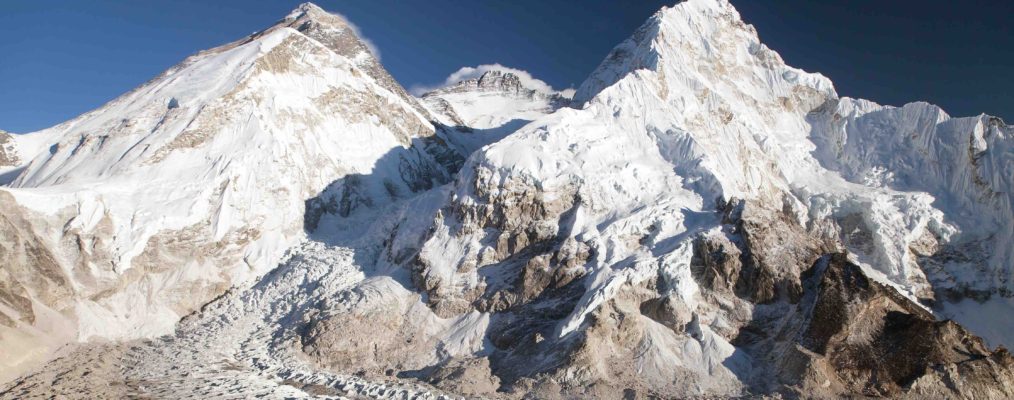After some uncertainty, the Nepalese government has passed regulation banning solo climbers, double amputees, those proven medically unfit, those under 16, and climbers who are blind from attempting to summit any climbing peaks in Nepal. These changes were brought into effect immediately, meaning the Everest spring 2018 season will be off-limits for those who fall into one or more of these categories.
These changes will surely come as a disappointment to former British Gurkha and double amputee Hari Budha Magar, who had planned to climb Everest this spring, after having climbed Mera Peak (and setting a record as the First Double Amputee Above Knee to climb a 6,000m peak) in preparation for his Everest attempt. Magar has also been training around Gosainkunda in Nepal, Ben Nevis in Scotland, and Mont Blanc in France during the past 18 months. He is currently training on Thorung La Pass in Nepal. Magar stated in a Facebook post, “The rules of banning disabled people to climb mountains is unfair. This rule is discrimination against disabled people and against the human rights.”
He is not the only person to speak out against the new rule. The United States ambassador to Nepal Alaina Teplitz tweeted, “Ability not perceived ‘disability’ must guide rules on who can trek Mt. Everest. Climbers like Hari Budha Magar shouldn’t be banned because of false assumptions about capabilities. Accessible tourism for all will make it clear that Nepal welcomes everyone!”
After news that these changes had been endorsed by the government, Alan Arnette updated his blog on the proposed changes to include this statement: “The regulations were passed at the end of December plus a measure to raise life insurance for Liaison officers. This is insult to injury since the LOs rarely do their stated job and rarely go to base camp in spite of regulations requiring them to perform that duty. Cleary all of this is a political move and has nothing to do with safety, mountaineering or Everest.”
Arnette also said in his blog post, “So what constituents a disability or who is ‘proven medically unfit for climbing’? If this is about protecting people from their own ambitions, then over half of the annual climbers should be banned each year as they lack the experience to safely climb Everest. And where does this stop – people with asthma, diabetes, hemophiliacs or cancer? All of these have recently successfully summited Everest with no problems.”
On a more positive note, the new rules also mean that all of the support team that summit will now receive a summit certificate. The Himalayan Times stated, “The Council of Ministers which passed the revised regulation yesterday also stated that Sirdars, mountain guides and high-altitude workers, who accompany expeditions to the top of the climbing peaks, including Mount Everest, shall get summit certificates.”






